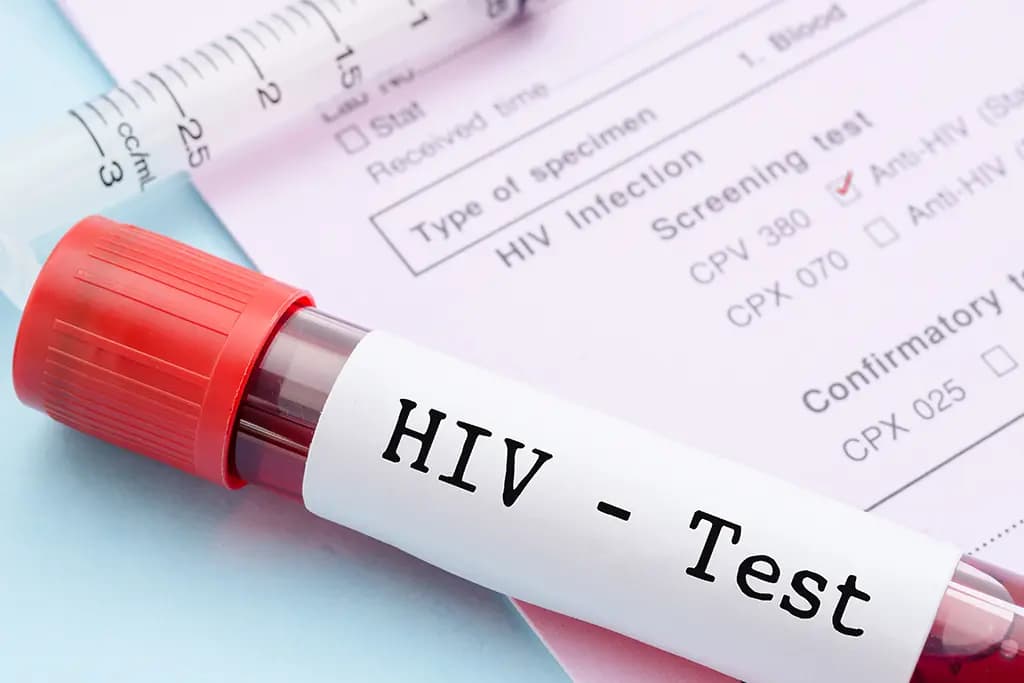
HIV Early Detection Tests: How Accurate Are They?
In today’s fast-paced world, we are witnessing remarkable advancements in medical technologies and diagnostic tests, including the accuracy of HIV early detection tests. The reliability of these rapid HIV tests can provide you with the best protection against the risks associated with this disease.
This article will guide you through the various parameters to consider when evaluating the accuracy of HIV tests.
What are HIV and AIDS?
HIV stands for Human Immunodeficiency Virus. It directly affects your immune system by compromising its functions. White blood cells (WBCs) protect our bodies by fighting against various pathogens and infections. HIV targets and invades CD4 cells (a type of WBC), gradually destroying them and weakening your body's immunity against different diseases.
AIDS, or Acquired Immunodeficiency Syndrome, is a condition that can develop in individuals who have sustained significant damage from HIV. The onset of AIDS typically indicates the advanced stages of HIV infection. However, not everyone with HIV will develop AIDS, particularly with early and effective treatment.
Given this context, it is crucial to undertake an HIV early detection test.
How Accurate Are HIV Early Detection Tests?
Previous studies and patient records suggest that HIV early detection tests are approximately 98% accurate. However, accuracy can vary depending on the type of test and the timing of the test in relation to exposure. Several factors influence the accuracy of rapid HIV tests, including:
- The timing of the test; specifically, the duration since exposure to HIV. Different tests have varying "window periods," the time after exposure during which a test can reliably detect HIV.
- The diagnostic method chosen for detecting HIV. Different tests (e.g., PCR, antigen, antibody) have different levels of sensitivity and specificity.
- The individual’s immune response to HIV. Some people may take longer to produce detectable levels of antibodies or antigens.
HIV is not easily detectable in its early stages. The virus gradually becomes more dominant as the infection progresses. Your doctor can diagnose HIV once acute symptoms begin to appear. Accurate and reliable test results are possible from the acute to chronic stages of HIV infection.
According to WHO reports, there were approximately 37.7 million HIV-positive cases worldwide in 2020. The detection of these cases involved widespread use of early HIV detection tests. Early detection significantly reduces the risk of developing AIDS.
Different Types of HIV Tests
You can visit a walk-in sexual health clinic in London for rapid HIV testing. Various diagnostic methods include:
Rapid PCR HIV Test
This test should be taken at least 10 days after exposure to the virus. Reports show that approximately 98.2% of these tests successfully detected HIV accurately. The swift results of this test also allow for immediate medical intervention to manage HIV risks.
Blood or Antigen HIV Test
This test detects HIV antigens in your bloodstream. It is recommended to take this test between 18 and 45 days after exposure. The results are typically available within a few days, and the accuracy rate is around 99%. This test has a relatively short window period, making it effective for detecting early infection.
HIV Test with Home Sampling Kit
With a home sampling kit, you can collect your saliva or blood sample at home, saving you the trip to a clinic. The sample is then sent to a laboratory, which will contact you with the results. This method is about 99% reliable. However, a major drawback is that the test cannot be performed immediately after exposure; you must wait at least 90 days for the most accurate results due to the longer window period.
Rapid HIV Test with Home Testing Kit
Unlike the home sampling kit, the home testing kit allows you to both collect and test your sample for HIV. This is perhaps the quickest method of diagnosing HIV, with results available within minutes. According to patient reviews, this method is 99.7% reliable. However, like the home sampling kit, it cannot accurately detect HIV before 90 days after exposure.
When Should You Take an HIV Test?
No current test can detect HIV immediately after exposure. Based on the diagnostic methods mentioned above, you should wait at least 10 days after exposure to take an HIV test. For the most accurate results, you may need to wait up to 90 days due to the varying window periods of different tests.
Where Can You Get an Early HIV Test?
You should visit a walk-in sexual health clinic in London for rapid HIV testing as soon as you notice symptoms of HIV. Benefits of early detection testing include:
- A discreet and confidential testing experience
- Shorter waiting times for diagnostic appointments
- Diagnosis by highly skilled healthcare professionals
- Access to accredited laboratories for the most reliable diagnostic experience
What to Do If Your HIV Test is Positive
If you test positive for HIV, the first step is to book an appointment with your GP. Your doctor will thoroughly review your medical history and current health concerns. A swab test may be conducted to further analyse your HIV infection. Your doctor will then provide you with guidelines and instructions on managing your HIV risks, helping you make informed health decisions.
How Long Can You Live with Undiagnosed HIV?
Due to the minimal appearance of symptoms in the initial stages, many people fail to notice the onset of HIV. However, after 10 to 15 years of continuous exposure, severe health complications may arise, potentially leading to the development of AIDS.
Key Takeaways
HIV early detection tests are a crucial part of routine health check-ups. They help you assess your risk of HIV infection and prevent the serious complications associated with AIDS. For accurate early detection, visit a walk-in sexual health clinic in London. Early detection enables you to seek advanced medical care to manage your HIV symptoms and risks.

We Are Here!
Mon-Fri from 9am to 5pm




